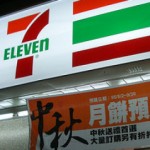Economy of Beijing 1
Overview
China has experienced great changes in recent years, with economy developing in a rapid speed. As the capital of China, Beijing has also played the leading role in China’s all-around development strategy. In 2012, Beijing’s economy has continued its steady development as in the previous year, adjusted the turbulence of the price level, stabilized the employment situation and improved the social and livelihood condition of citizens.
According to the statistics from Beijing Municipal Commission of Development and Reform, the total output level in Beijing has grown for 7 per cent in the first quarter in 2012, with all fundamental aspects growing in reasonable predictable intervals. The average GDP per capita has reached 12,447 US dollars. The autonomy of corporations seeking for reformation, adjustment and transformation has strengthened. The traditional enterprises have accelerated their industry update and the merging enterprises have been fast-growing. A pilot project of carbon emissions trading has been established in Beijing in this year, accompanying the activeness of factor markets. The price level has grown for 4 per cent in the first quarter, falling 1.2 per cent from the 5.2 per cent last year. The price level of food and residence are also less than the previous year. In the future, it will not have a great change in the development trend that “achieving new process on the transformation of economy development on the basis of the steadiness of policy, economy and price level”.
Internet Economy
Internet economy can be defined the economy entities that conduct business through markets whose infrastructure is based on the Internet and World-Wide Web. The importance of internet economy is not only based solely on its own industry’s development, but also the economy value and externality effect that it brings to the relative industry that can be linked with. Beijing has the largest number, the largest scale, the most widely and the most complicated internet enterprises. Until the end of 2011, the number of internet enterprises in Beijing has reached 298 thousand, accounting for 16.3 per cent in China. According to the statistics from Beijing Municipal Commission of Economy and Information Technology, the total output value of software and informational service industry has reached 124.22 trillion RMB yuan in Beijing, accounting 9.0 per cent of the total GDO in Beijing. The increasing speed has reached 21.6 per cent, ranking the first among all the industries. The economic growth points are distributes among the e-commerce, online games, online advertisement, mobile internet and search engine. In general, the internet economy in Beijing has a benign foundation and clear advantages for resources. It has great scale, fast developing speed and big room for improvement.
But with the prosperity in this industry is also an alarming bell for the companies in this country. In 2002, the industrial foam on the portal website has sent a lot of companies to the guillotine. In this summer, the trade volume of massive collective purchasing website (which are the Chinese version of Groupon.com) has fallen sharply, accompanied with users’ less activeness and less purchasing frequency. The reason why these companies are falling is that their business based solely on the financing and do not obey the business rules. The scale of their company has exceeded largely than the current consumption demand and the companies’ management ability. Even the joint venture cooperated with Groupon.com has started to lay off its employees in Shanghai office. But it is not the fault of industry neither the fault of the model of collective purchasing website. It seems that the barrier of the business if low, so a lot of business emerged and compete the market. But actually the barrier of a large scale website is relatively high and cannot achieve solely by financing. But unlike portal website, the model has great potential to be optimized, such as refining the refunding policies and transferring into a niche market.
In general, the internet economy in Beijing is getting hotter and there are massive opportunities in this industry. But to survive and succeed in this fierce arena, one company should leave off the market mania and find its core competence.
Retails in Beijing
As the consumption center of China, Beijing retailing development has been steadily increasing in recent year. According to the Beijing Statistical Information Net, the total consumption volume of social consumer goods from January to April in 2012 is 240.61 trillion RMB yuan, growing 13.1 per cent compared to the previous period. The speed of growing is 1.6 per cent higher than the previous period. All the figures can show that the development of consumption in Beijing is in accordance with the development of economy in Beijing. However, there are also other concerns about retailing industry in Beijing. The volume of retailing industry in Beijing is almost in saturation and the future penetration of retailing industry in China will be more focused on the second-tier and third-tier cities. The cost in the retailing industry has been soaring, with the human cost and store rent increased. So a company is getting harder to enact the strategy of cost-leader. The whole expansion is enlarging, penetrating the suburb area in Beijing because of the saturation of city centre.
However, we must notice that the merging internet economy has an impact on the retailing industry. Manu people the internet economy and e-commerce will challenge the position of retailing industry. Especially, Beijing has a large number of internet users, many of whom are fond of the fast speed and convenience of e-commerce. So, the fear that the retailing industry will be negatively influenced by the e-commerce is not under no basis. However, some experts pointed that the concerns is no that series actually. Just as analysis in the previous section, the e-commerce industry is still looking for its own position and does not find the solution of survival. Also, difficulties of financing have occurred in a lot of e-commerce corporations. In 2012, there is expected to a reshuffle in the e-commerce industry. On the other side, the development of retailing industry is averting the head-on clashes with e-commerce. For the format of shopping mall, Beijing’s shopping malls have already become the integration of shopping, retailing, dinning and entertainment, while the characteristic of on-line shopping is fast and convenient. For the format of supermarket, the less confine of time and place by convenience store and the ability of selling fresh food by hypermarket will not be replaced by the e-commerce entity. However, we can see the format of home alliance retailing has been seriously influenced recently. In Beijing, we can easily feel the competition between e-commerce home alliance retailing websites and the physical stores from their increasing frequencies of advertisement, promotion campaign, PR events and pricing strategies. In general, the whole retailing industry in Beijing will continue its development modal in the short future and present a greater prosperity.














